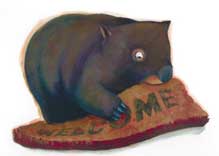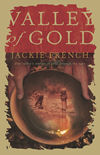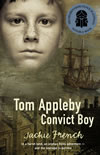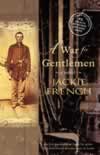|
The Goat Who Sailed the World - The HM Bark Endeavour is sailing to Tahiti to measure the transit of Venus, but there are rumours that once the task is completed, Lieutenant James Cook has a set of secret orders — orders that command him to search for the Great South Land.
Isaac is twelve and has joined the crew of the Endeavour as a master’s servant, good for scrubbing decks and not much else. He’s certainly not considered good enough to fetch hay for the Goat who will provide fresh milk for Cook and his officers. And this goat even has more experience at sea than Isaac — she has already sailed around the world once, watching the ocean and lands slip by from her spot on the quarterdeck.
Over the months on board the Endeavour, a friendship grows between the Goat and Isaac, one that will last through shipwreck, bushfire and illness. A friendship that helps in the discovery of exotic new lands …
They Came In Viking Ships -
It was exciting seeing the text I worked on finally turn into a book. The cover is wonderful, and the story ...
Well, it grabbed me about five years ago. I was reading some of the Icelandic Sagas, the history poems written about eight hundred years ago. The sagas told the stories of Erik the Red, founder of the Greenland colony, and his son Leif, who sailed to 'Vinland' or present day North America.
But there too was Freydis, Leif's sister, who according to one saga also lead an expedition to Vinland. Why do we remember Leif, when Freydis is forgotten?
The more I read the more fascinated I became. Only two of the sagas mention Freydis. In one she is a total villain, who murders the rest of the expedition to get all the profits for herself, and who takes her husband's axe to kill the other women. But in the other she is a modest dutiful heroine, who saves them all when the skraelings- the native Americans- attack.
The men flee, but Freydis is nine months pregnant and can't run. So she takes up the sword of a fallen Viking, rips her bodice open, slaps the sword against her breast, and charges them, and saves them all.
Which makes sense if you think about it- bows and arrows only work at a distance. Up close an iron sword would win.
So what happened to Freydis? Why has this extraordinary women been forgotten?
Mostly, I think, she was just too strong a character for later poets and historians to cope with. By then the Roman Church had taken over from the Celtic, and they were trying hard to wipe out references to strong women, (St Brigid, for example, was a Bishop, but that but was mostly forgotten too).
'They came in Viking Ships' tells Freydis's story from the point of view of Hekja, a Scottish thrall, or slave, and her dog Snarf, as they are captured by the Vikings, taken to the Greenland colony, and then to the new colony in Vinland. The book was picked up by Harper Collins UK, US and Canada too, even before it came out here. It's an extraordinary story, though that is due mostly to Freydis Eriksdottir, not me.
Valley of Gold -One valley’s stories of gold through the ages, from the beginning of the earth 4 billion years ago, through the valley’s creation and the history of its alluring deposits.
Interspersed with historical and geological information are stories that bring to life the valley and its occupants. First, around 35,000 BC, we meet Mirrigan, a young Aboriginal man hunting the last of the mainland thylacine to present its skin to his female friend, Dhani. From there we move through stories of European settlement, gold rushes, Chinese immigration, bushrangers, relations between Indigenous and European people, world wars, the Depression and natural disasters. When we arrive at the present day, the substance that has so shaped the valley's recent history – gold – is still an important commodity, but no longer at the expense of the valley.
Walking the Boundaries
Tom Appleby Convict Boy
A War for Gentlemen
- 'Charles Fitzhenry wanted to be a hero, and left his home in New South Wales to fight for freedom in the American Civil war - on the side of the south. Gentlemen like Charles fought for the ideals of their class, for honour and glory.
But it was not a war of honour. It was simply endless battles, starvation and hardship in an increasingly bitter war.
Was Charles a hero, even if the war he went to fight was not the one he found?
Based on a true story, A War for Gentlemen follows Charles Fitzhenry to battle; to his escape with Caroline, his uncle's slave, and their new life together; and the echoes of the war in the lives of their children and grandchildren. It is an unforgettable story of love and honour, unexpected happiness, and the terrible consequences of ideals - a story that still echoes in the wars Australians fight today.'
|







